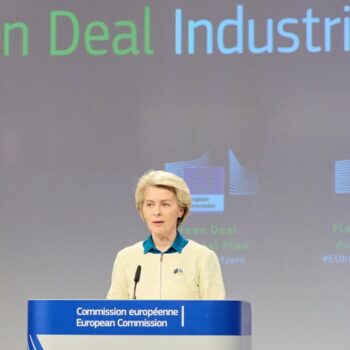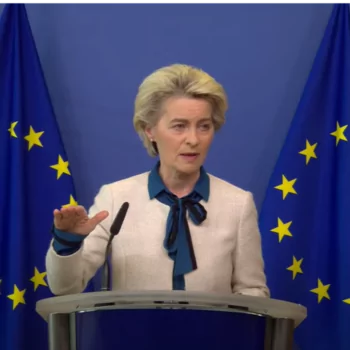The energy security strategy, to be announced on Thursday by the UK Government, must enhance energy and climate security, while reducing bills.
The war in Ukraine is causing energy bills to rise at the fastest rate since WWII. Heart-wrenching stories are emerging of families who are facing the choice of whether to heat or eat. The cost of living crisis is set to get much worse. Energy bills, having just gone up by £693 this April, are predicted to increase another £500 this October. This could leave six million households in fuel poverty.
As this deal is being finalised, there are some worrying signs it is headed for failure.
First, the stream of leaks about the Government’s intention to build seven major nuclear power stations. Ministers like nothing more than a big techno fix and nothing comes bigger than nuclear. Hinkley Point C construction is visible from space and cited as the biggest single infrastructure project in human history. But big nuclear means big bills. Both the Climate Change Committee and the National Infrastructure Commission have crunched the numbers on net zero and concluded that the UK doesn’t need more than two large new reactors, including Hinkley Point C. This is based on their assessment of net zero requirements, but also their analysis of keeping net zero affordable.
Investors are drawn to renewables because they make financial sense. New UK solar and wind supply is now six times cheaper than fossil fuels
Even this advice could be far too generous. Nuclear costs continue to rise while the costs of renewables and energy storage fall. There are now question marks over whether any further nuclear power stations will be required at all. Advances in storage, inter-connection, diverse renewable supply and smart demand management offer the possibility of a renewables-based energy system, that keeps the lights on and brings down bills. This is the nuclear industry’s worst nightmare. They are using the invasion of Ukraine as their last chance to make the case for a major expansion of nuclear, even if it puts bills up. This lobbying push makes the fossil fuel lobbyists on Washington’s Capitol Hill look like amateurs.
Investors are drawn to renewables because they make financial sense. New UK solar and wind supply is now six times cheaper than fossil fuels, evidence which rips to pieces the claim by the small band of anti-net-zero Conservative MPs that the UK can only make energy bills more affordable by doubling down on fossil fuels and taking an axe to renewables deployment. Attempts by other MPs to oppose onshore wind developments while supporting nuclear suggests they are not just out of touch with voters, they are not serious about helping with the energy price crunch.
The other major missing element of the energy security strategy debate is the need to cut demand. Over the last month there have been calls from experts for a new, far more ambitious energy-saving programme. E3G analysis shows that 25% of UK gas demand could be eliminated by 2030 and new measures can end UK dependence on Russian gas within a year. They can also help reduce the energy bills of poorly-insulated homes by £500 on average. But the Government has failed to comment on the importance of this solution in recent weeks. The concern is either that the most affordable, effective solution for enhancing energy security is missing from this strategy – which is unthinkable – or the Chancellor is hesitating to inject more public investment into existing programmes, which seems more likely.
The energy security strategy should have energy saving at its heart, alongside a huge acceleration of solar and wind deployment and energy storage.
Chancellor Rishi Sunak faces a dilemma. The Prime Minister is demanding a high-cost nuclear programme that requires a huge upfront Government subsidy and will increase energy bills twice for households: once to pay for inflated construction costs and once more to use electricity from nuclear, much more costly than wind or solar. Will he support this bid or will he surge public investment into saving energy instead, which will guarantee increased energy security, reduce energy bills and still boost the economy? Conserving energy should not be a dilemma for a Conservative. If he is worried about funding a large-scale energy efficiency programme, he could announce a windfall tax on the colossal, unearned revenues of fossil fuel companies.
The energy security strategy should have energy saving at its heart, alongside a huge acceleration of solar and wind deployment and energy storage. That meets the energy security challenge while guaranteeing that bills will come down for everyone. All other solutions will either keep us addicted to expensive fossil fuels or keep energy bills high. The only person who wants that is Vladimir Putin – and those who seem happy to do his dirty work.



